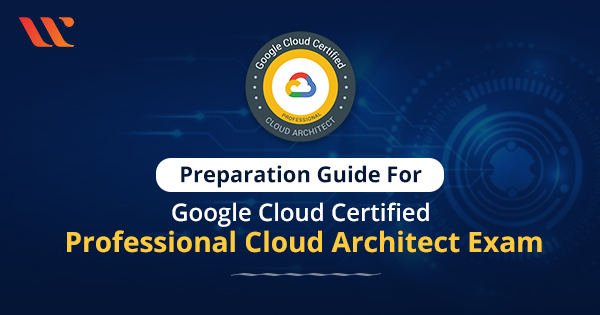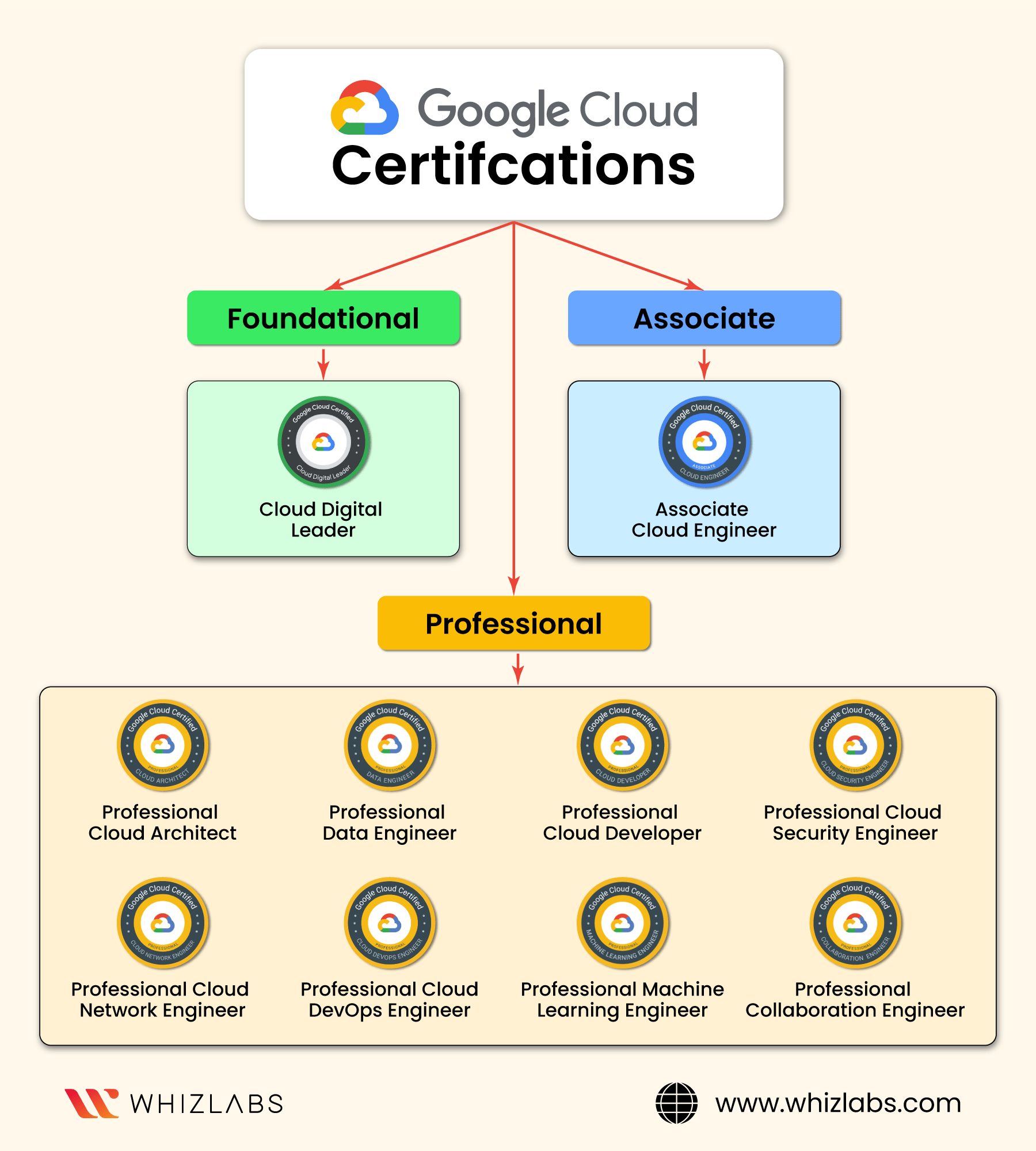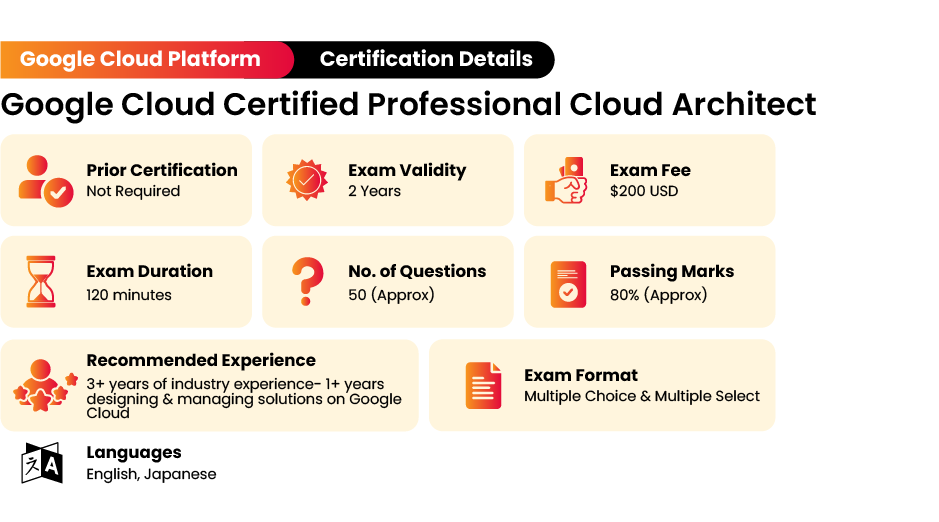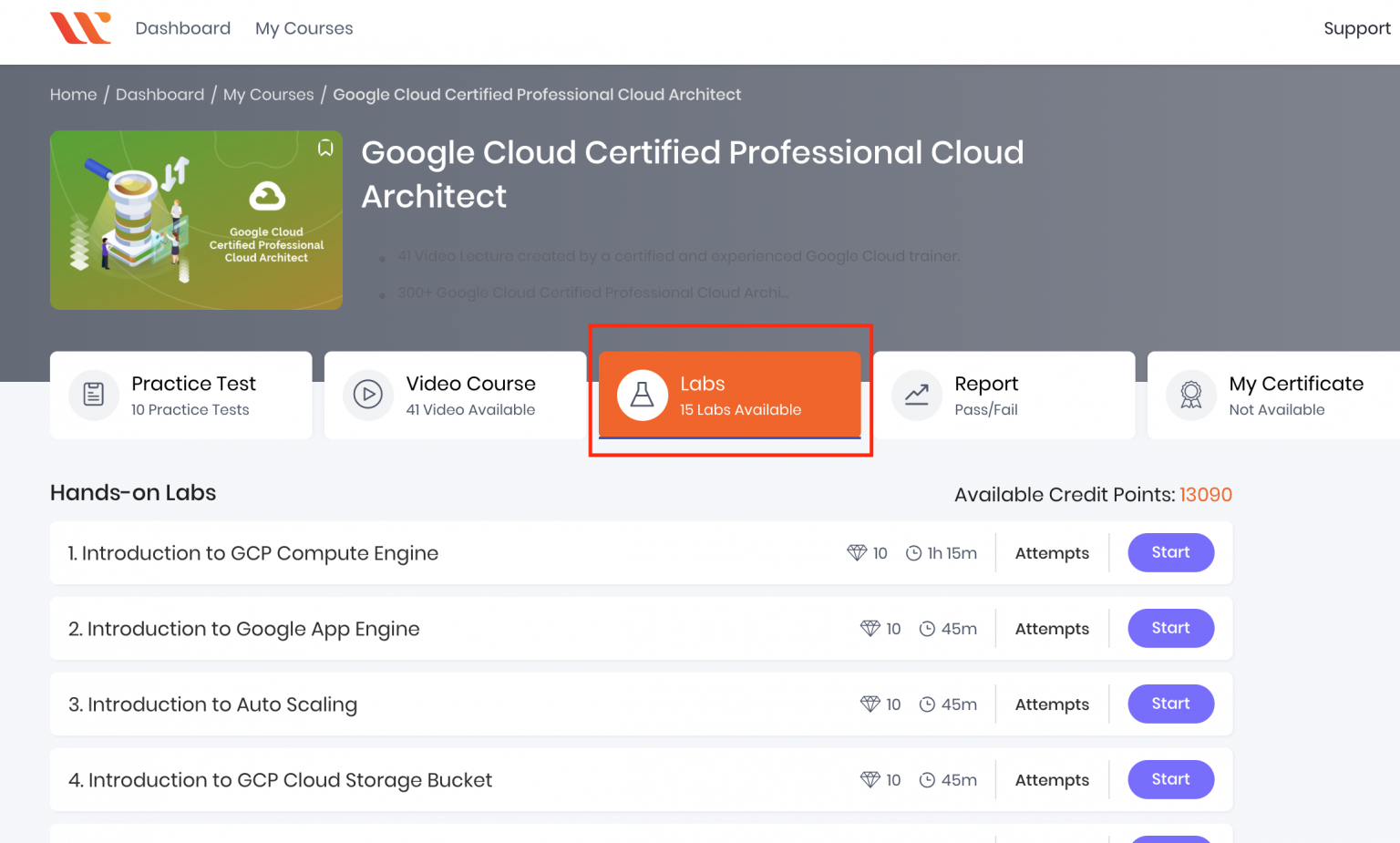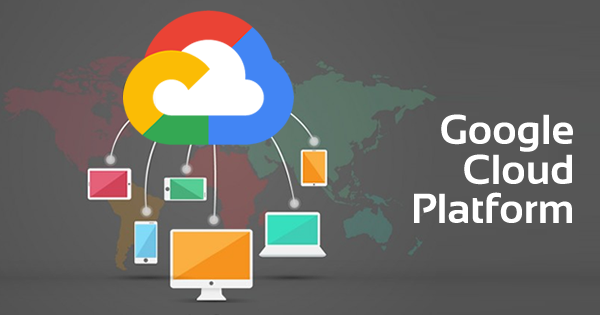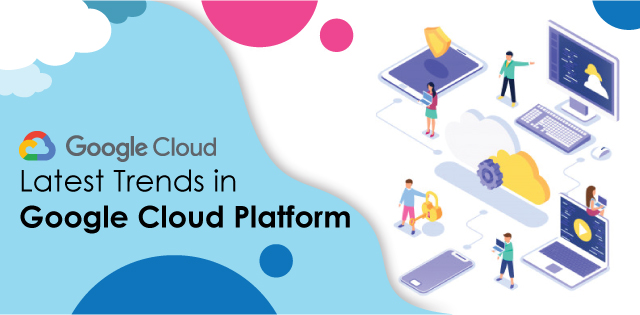In this blog, we are bringing to you a very detailed guide and explanation on Google Cloud Architect exam preparation. This guide would answer your questions on preparation, prerequisites, eligibility, topics covered, skills validated and more to pass your Google Certified Professional Cloud Architect Exam. With the demand, the certification is quite popular in the market, and you can make it on the first attempt with this guide. Why delay? Let’s get started!
Introduction to Google Cloud Platform
According to Global Knowledge’s report, this exam is listed as the second most demanded certification in the market. Google Cloud Platform was released by Google in 2012. It offers several cloud computing services and resources such as storage, database, applications, etc., over the internet. If I consider it personally, then Google Cloud Platform is my favourite cloud platform due to the services it offers.
Google Cloud Platform enables you to create highly scalable and available web applications to add more value to the end users. If you are looking for a cloud platform that is both cost-friendly and developer-friendly, then Google Cloud Platform is the right choice for you!
Google Cloud Certifications are solely meant to validate and demonstrate the knowledge of the cloud professional to develop, design, administer, and manage application infrastructure and data solutions using Google Cloud Platform (GCP) products/services on Google Cloud Platform.
Currently, Google offers 10 certifications to demonstrate the skills of cloud professionals working on the Google Cloud platform. These are
- Google Cloud Certified Cloud Digital Leader
- Google Cloud Certified Associate Cloud Engineer
- Google Cloud Certified Professional Cloud Architect
- Google Cloud Certified Professional Data Engineer
- Google Cloud Certified Professional Cloud Developer
- Google Cloud Certified Professional Cloud DevOps Engineer
- Google Cloud Certified Professional Cloud Security Engineer
- Google Cloud Certified Professional Cloud Network Engineer
- Google Cloud Certified Professional Google Workspace Administrator.
- Google Cloud Certified Professional Machine Learning Engineer
As this blog is about the Google Cloud Architect exam preparation, we will have our focus on how to prepare to become a Google Cloud Certified Professional Cloud Architect. Let’s start with the detailed explanation of this exam!
Google Cloud Certified Professional Cloud Architect Exam
The professional Google Cloud certification is for those who want to validate and demonstrate their skills in developing, designing, and managing highly scalable, secure, available, dynamic and robust applications on the Google Cloud Platform.
What are the benefits of the Google Cloud Architect certification exam?
If you are preparing for the Google Cloud Architect certification exam, then it is required to understand the importance of this exam first. Let’s look into the following points for the key benefits of this certification exam:
- Validates your skills in developing, designing, administering, and managing solutions using Google Cloud technologies
- Adds a credential to your resume and makes you stand out from the crowd
- Globally provides you with recognition as a Google Cloud Certified Professional Architect
- Demonstrates your working knowledge of Google Cloud Platform
- Helps you get better job opportunities and makes you eligible for a higher position
- Results in overall improved performance and capabilities as a Cloud Architect
Overview of the Google Cloud Architect certification exam
Before moving to the Google Cloud Architect exam preparation, it is important to understand the exam structure and format very well. Here is an overview of the Google Cloud Architect certification:
Who can apply for the Google Cloud Architect certification exam?
Although the Google Cloud Architect certification exam is not limited to any particular role yet it is considered that it is mainly intended for:
- Solutions/ Enterprise Architects
- Members of the Operations Team
- System Administrators
- Fresh Graduates Who Want to Build a Career as Cloud Architects
Also Read: Top Free Questions on Professional Cloud Architect
Job role of Google Cloud Architect
Google Cloud specialists, Sales Cloud architects help businesses use Google Cloud services by understanding the cloud world and Google technology. The cloud architect’s responsibilities are as follows:
- He creates cloud solutions based on the requirements of the customer
- He puts the cloud solutions into action after they are developed
- Create dependable, scalable, and safe cloud solutions
- He oversees multi-cloud and hybrid-cloud distributed apps
Google Cloud Architect Certification Exam Objectives
To start the exam preparation, it is highly recommended to understand the exam objectives. Google has divided the exam syllabus into various sections and then subject areas. Let’s understand the topics that are covered in the exam, and you need to focus on them to pass the Google Cloud Architect certification exam.
| Section | Subject Areas |
| Section 1. Designing and planning a cloud solution architecture | |
| 1.1 Designing a solution infrastructure that meets business requirements. Considerations include: |
|
| 1.2 Designing a solution infrastructure that meets technical requirements. Considerations include: |
|
| 1.3 Designing network, storage, and compute resources. Considerations include: |
|
| 1.4 Creating a migration plan (i.e., documents and architectural diagrams). Considerations include: |
|
| 1.5 Envisioning future solution improvements. Considerations include: |
|
| Section 2. Managing and provisioning a solution infrastructure | |
| 2.1 Configuring network topologies. Considerations include: |
|
| 2.2 Configuring individual storage systems. Considerations include: |
|
| 2.3 Configuring compute systems. Considerations include: |
|
| Section 3. Designing for security compliance | |
| 3.1 Designing for security. Considerations include: |
|
| 3.2 Designing for compliance. Considerations include: |
|
| Section 4. Analysing and optimising technical and business processes | |
| 4.1 Analysing and defining technical processes. Considerations include: |
|
| Analysing and defining business processes. Considerations include: |
|
| 4.3 Developing procedures to ensure reliability of solutions in production (e.g., chaos engineering, penetration testing) | |
| Section 5. Managing implementation | |
| 5.1 The ing development/operation team(s) to ensure the successful deployment of the solution. Considerations include: |
|
| 5.2 Interacting with Google Cloud programmatically. Considerations include: |
|
| Section 6. Ensuring solution and operations reliability | |
| 6.1 Monitoring/logging/profiling/alerting solution | |
| 6.2 Deployment and release management | |
| 6.3 Assisting with the support of deployed solutions | |
| 6.4 Evaluating quality control measures |
How to apply for the Google Cloud Architect certification exam?
So, now you have received all the information about the Google Cloud Architect certification exam. If you are determined enough to take this exam and become a certified Google Cloud Architect, then it’s time to register for the exam and go ahead with the preparation. Here are the steps to apply for the Google Cloud Architect certification exam:
- Go to the Google Cloud Webassessor website and create an account.
- Check the catalogue and register for the exam you want to apply for.
- Choose the center, i.e. Kryterion Testing Centre.
- Schedule exam data and exam time.
Read More: Google Professional Cloud Architect – The Ultimate Guide
Important Points about Google Cloud Architect Certification
There are still some points that you should keep in mind before giving it your best. Try, here are some of them.
- One of the first things that anyone going for this certification needs to understand is that getting this certification does not automatically guarantee you a job. Sure, having Google Cloud’s reputation behind your credentials will help you to have a degree, but in the end, it will be your talent that gets you the position.
- Since the certification is renewed every 2 years, it is important to ensure that you keep yourself up to date with the latest information in the field of Google Cloud architecture. Next time you sit for the exam, the curriculum could have changed based on market and technology trends.
- The reason this exam is in a multiple-choice format is that it is designed to test the general knowledge of the candidate in the field of cloud computing and architecture. It is not, however, designed to access the depth of your knowledge, so even if you don’t have a lot of experience in this field, it is still something that you can pursue without hesitation.
- Owing to the general nature of the assessment, it is also important to note that you will only receive a pass or fail grade for the exam. Candidates should not expect feedback on their attempt itself, or any specific information regarding areas they were weak/strong in.
- Since the Google Cloud Platform supports a host of programming languages, such as Java, Node, PHP, Python, Ruby, etc., it becomes easier for programmers to understand and prepare for the exam, even if they know only one or two of the above-mentioned languages.
- Experience of working on the Google Cloud Platform in itself is a great way to familiarise yourself with what is expected. So it never hurts to experiment on the platform, even if it is just to get yourself acquainted with where and how different functions can be accessed and executed.
- In addition to the Google Cloud Architect practice exam, there are also Beta Examinations that pop up for a short period before the final exams. These are also the paid exams, but come at a discounted price. The whole purpose is to gather performance statistics on the questions and use these statistics to create the certification standards for the final exams. However, if you pass them, you are still considered certified, without even taking the final exam. The thing to consider is that even though they are cheaper, they are still longer than the final exams, which can be a hurdle for some and an opportunity for others.
Step-by-Step Guide for Google Cloud Architect Exam Preparation
In this section, we have explained important steps to prepare for this exam.
1. Start with the Exam Guide
As you expected, the first step is to read the Google Cloud’s official study guide (the exam syllabus of what topics are covered in the exam). This is only the starting point to get started in knowing what’s tested in the real exam.
- You can access the Google Cloud Certified Architect official study guide here.
2. Study the Documentation
While the exam guide gives you an overview of the entire syllabus of the Google Cloud Architect certification exam, the documentation page focuses solely on the Google Cloud Platform itself. Unlike the guide, this goes in depth about the concepts and critical components of GCP; thus becoming more valuable for your Google Cloud Architect exam preparation. Once you go through it properly, you will have a far better idea of exactly what you can accomplish with this platform.
In addition to the platform, you also get a look at all the services for computing, storage, networking, big data, machine learning, operations and more that are already up and running with GCP as a base. Since you might end up working on one or more of these services during your career as a Google Cloud Architect, it is in your best interest to know everything possible about these services.
3. Take the Training Courses
The third step is to purchase good training materials to prepare for the associate engineer certification exam. The ideal preparation materials are:
- Video Course
- Hands-on Labs
- Google Cloud Certified Professional Cloud Architect Exam Questions
Whizlabs provides all the above materials created by the Google Cloud Certified Experts.
4. Practice with Hands-on-Labs
Whizlabs is providing hands-on labs for the Google Cloud Platform. Practice using Whizlabs labs would help you to understand the concepts very well.
Here is the snapshot of the labs dashboard.
5. Try Practice Questions & Solve Them
Once you have progressed with your preparation ideologies, it is important to use practice questions or mock questions that are available in the market for this certification exam. Solve them, test your skills and get used to the exam format. You will know the types of exam questions that you will have to face in the actual examination.
Test your skills, check with the solutions and mark the grades you get on practice questions. If you are not satisfied with the scores, then you are probably missing out on preparation efforts. Try harder, and come back to appear in practice exam questions, one more time. Continue until you get satisfaction with your preparation.
You can enrol in Whizlabs practice tests for the Google Professional Cloud Architect to check your preparation level for the exam.
Expert Tips You Need to Follow During the Google Cloud Architect Exam
Once you have gone through all the tips and resources for the professional Google Cloud Architect exam preparation, you won’t feel the least bit worried about passing the certification exam. However, like any other exam, it is often important to remember a few things that can help you smooth your journey through what can feel like the toughest 120 minutes of your life.
Here are a few tips that will do just that:
- Time is always key in a multiple-choice exam since the time limit itself prevents you from spending a lot of time on any particular question. This is why it is advised that you spend your time attempting as many questions as possible so that you get all of them on the first try.
- It is common to get confused between two different answers and start questioning your knowledge. In times like these, rely on your gut and pick the answer that feels right. You can always come back to revise at the end.
- A lot of multiple-choice questions often feature the answer in the body of the question itself. This is why it is recommended that you read the question completely and properly, as it might just save you time when it comes to picking an answer.
- If you see time running out and start to panic, it is totally fine to take a few minutes and calm yourself down. A frantic mind can make mistakes that a calm mind would easily avoid.
- Always pay close attention to the case studies, as they can be used to create multiple questions that are often linked together. As long as you understand and remember the underlying rules, you will always find it easier to navigate through the questions.
- Don’t rely too much on sample papers as a guess of what might come in the exam. They might feature questions from previous years, but that is not a guarantee that they will be used for future question selection.
- Revision is for all questions, not just the ones that you haven’t answered yet. It often happens that we only focus on the questions that are left, which can leave behind mistakes in questions that we’ve completed in a hurry, assuming that they are correct.
Google Certified Professional Cloud Architect salary
The total expected range for a Cloud Architect position at Google falls between $275,000 and $430,000 annually, which includes both base salary and supplementary pay.
Google Cloud Architect Certification FAQs
While going for the Google Cloud Architect Certification exam, it is recommended to go through some frequently asked questions. Here we cover some of the Google Cloud Architect Certification FAQs that will clear most of your doubts, and you will get the answer to all of your questions. Let’s get ahead!
1. What is a Google Cloud Certification?
If you’re working on Google Cloud Platform, the Google Cloud certification program gives you a chance to get your technical skills verified. Anyone can take these exams, including average users, customers, and technical partners, among others. Google is one of the biggest tech companies in the world that assesses individuals through a multiple-choice test to determine their level of competency.
2. How much does the Google Cloud Architect certification exam cost?
The cost of the Google Cloud Architect certification exam varies depending on the type of certification. For the Google Cloud Architect Exam, the cost is $200 at present.
3. How long is a Google Cloud Architect Certification valid?
All Google Cloud certifications are valid for 2 years from the date of certification. At the end of that period, the candidates are notified to take the recertification exam. However, if the exam in question is not scheduled during that period, the certification will be automatically extended until such a period when the exam can be conducted.
4. What happens if I don’t pass the Google certification exam?
If you don’t pass an exam, you still get two more attempts to pass it in the same year. The second attempt can be taken after 14 days, while for the third, you have to wait for 60 days. If you’re still not able to pass it, you will have to wait a year before taking it again. No matter how many attempts you make, you will still have to pay the full amount each time.
5. Why don’t I receive any score or feedback after I submit my exam?
The exams are designed to measure the competency of cloud computing professionals on the Google Cloud Platform. As long as you score high enough, there is no need to see what part of the exam was better or worse. Moreover, the whole purpose of a certification is only to say that you know enough about Google Cloud, not whether you are any good at it or not.
6. How much time will it take me to complete the Google Cloud Architect exam?
Exams vary in length depending on the syllabus. For the Cloud Architect exam, the standard time has been set for 2 hours.
7. Are there any prerequisites for the Google Cloud Architect certification exam?
There are no prerequisites to taking this particular exam. Anyone can take it, as long as they have sufficient knowledge of the subject and can pay $200.
8. Can I take this exam in a group or with a partner?
The Google Cloud Architect Exam by design must be taken independently and without collaboration with other people. Anyone caught cheating will be banned from taking another Google Cloud certification exam for a year.
9. Are Google Cloud certification exams open-book exams?
The Google Cloud certification exams are not open-book exams, and candidates are advised not to carry any notes or other unauthorised items in the exams. If you are caught with any unauthorised items, it will be considered misconduct and your exam results could be voided.
10. Is there an age requirement to be able to take the Google Cloud Architect certification exam?
Yes. Individuals attempting this exam must be older than 16 years of age if they live in the European Union. For all other countries, the age has been set to older than 13 years of age.
11. What happens if I violate the exam rules?
If Google discovers that you have breached the exam rules, your certification(s) will be revoked. You will also be permanently barred from retaking the exam and any other Google Cloud exams. Google may or may not choose to take necessary legal actions, depending on the laws of the country in question.
12. Do I need to carry a personal ID for my exams?
Yes, an ID is required before giving the exam. Acceptable forms of ID are those that have been issued by the government and include your name, photograph, and signature. If you are under 18 years of age, a school photo identification will be accepted.
13. Can I get a refund if I am not able to take the exam?
Refunds only apply to specific situations. If you need to get it, you must contact Google before the commencement of the exam. Even then, only a few circumstances make you eligible for it. They are:
- A medical emergency for you or a family member.
- Natural disasters or severe weather conditions.
- Urgent travel restrictions or severe security advisories were issued within 72 hours before the exam.
14. When will I need to rectify?
Since the validity of this exam is 2 years, you will have to recertify after that time. You will receive reminders about it via email, 60 and 30 days before the expiration date of your certification. The emails will be sent to the same email address used during exam registration.
15. Who can I contact for help?
For any questions regarding the Professional Cloud Architect exam, contact Google support by submitting the query form.
Final Words
Hope all this information will help you understand the requirement to undertake the Google Cloud Architect Certification Examination. As you can see, the exam has been designed to be as transparent as it can while still catering to anyone and everyone who wants to attempt it. Though the exam is typical, this detailed information, preparation guide, and the above-mentioned resources will make the journey easy with our practice test, video course, Hands-on labs and Sandboxes. If you have decided to go forward with the Google Cloud Architect certification exam, try the Whizlabs course and Wishing you luck!
- Which AWS Certification is Best For Developers - December 5, 2023
- Top Popular Hands on Labs for Google Cloud Platform (GCP) - October 29, 2023
- 7 Exam Tips for Google Cloud Database Engineer Certification - September 21, 2023
- What Is Azure Web Application Firewall (WAF)? - September 8, 2023
- The 5 Best Team Chat Apps for Business in 2024 - August 10, 2023
- What is Microsoft Cybersecurity Reference Architectures? - July 31, 2023
- How to Secure & Migrate your SAP Environment on AWS - July 26, 2023
- A Comparison of SUM-DMO and SWPM - July 21, 2023

